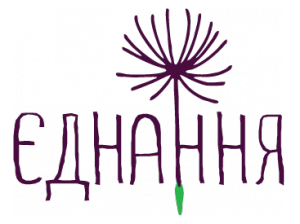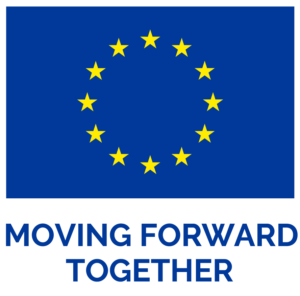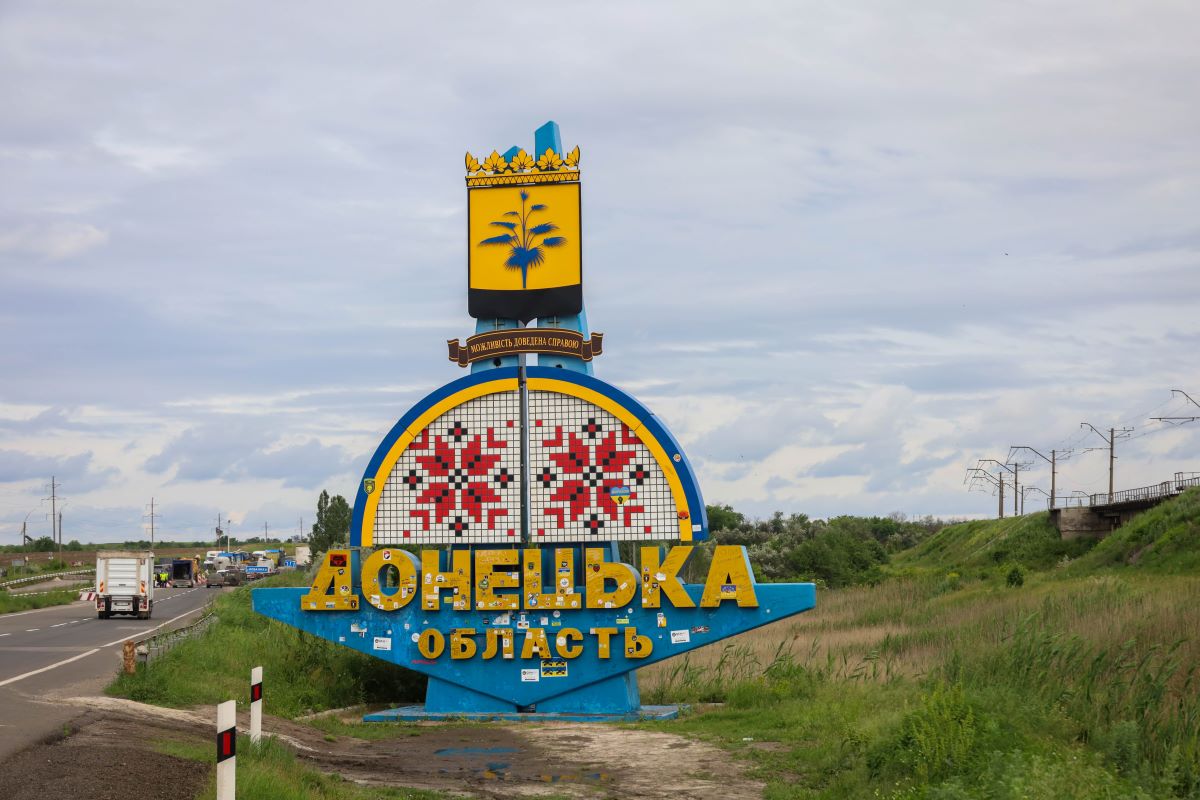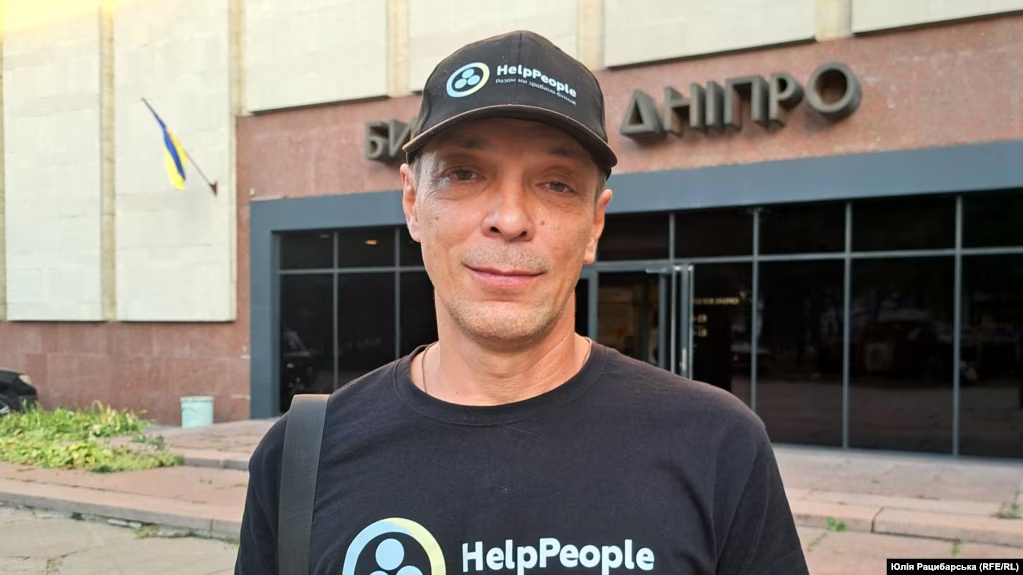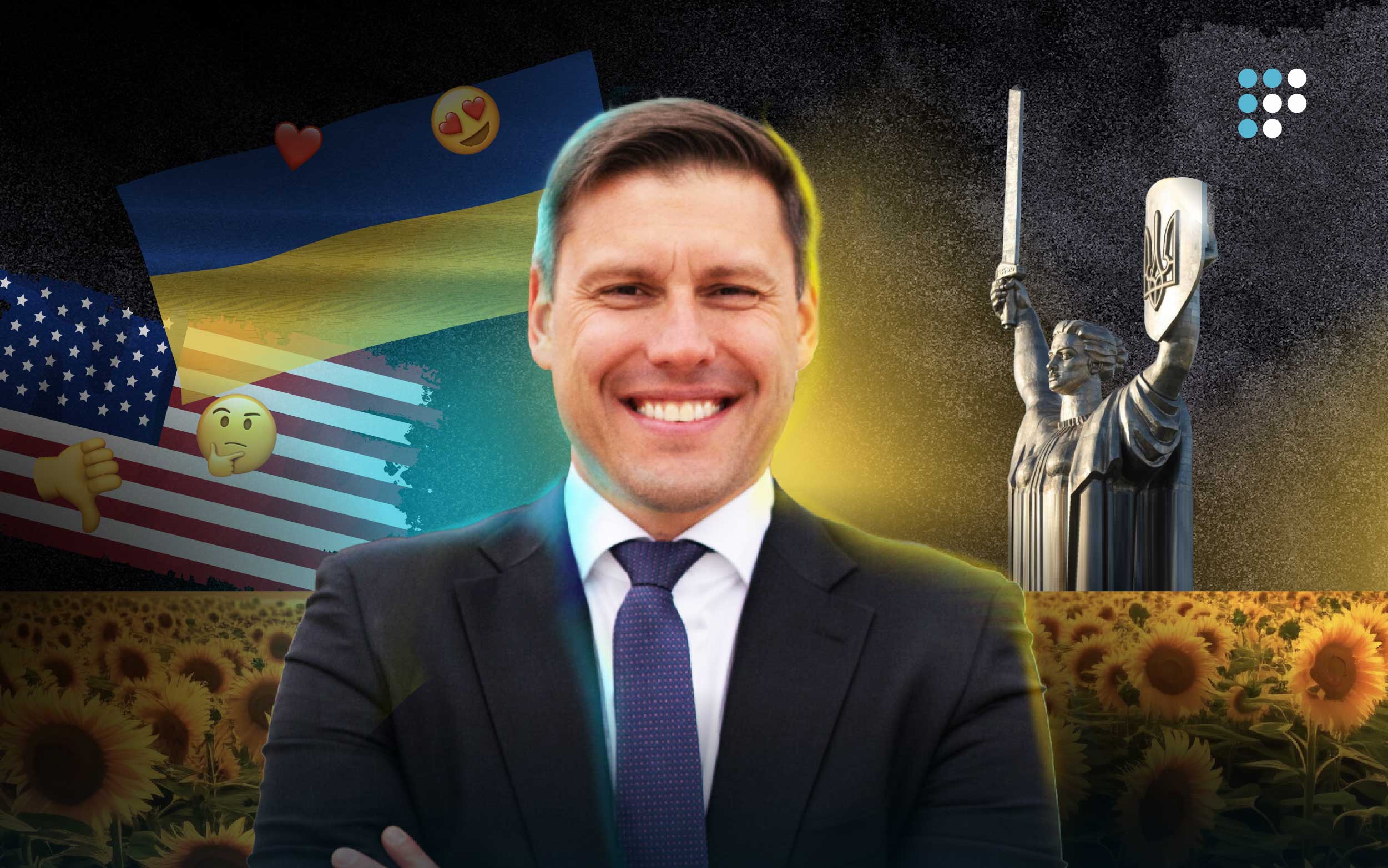
«Education, mental health, safety, heritage» — Chiara Dezzi Bardeschi about how UNESCO helps Ukraine
This is Ukraine Calling, the English-language podcast from Hromadske Radio in Kyiv. Andriy Kulykov today`s interviewee is Chiara Dezzi Bardeschi — the Head of UNESCO Desk in Ukraine since October 2022.
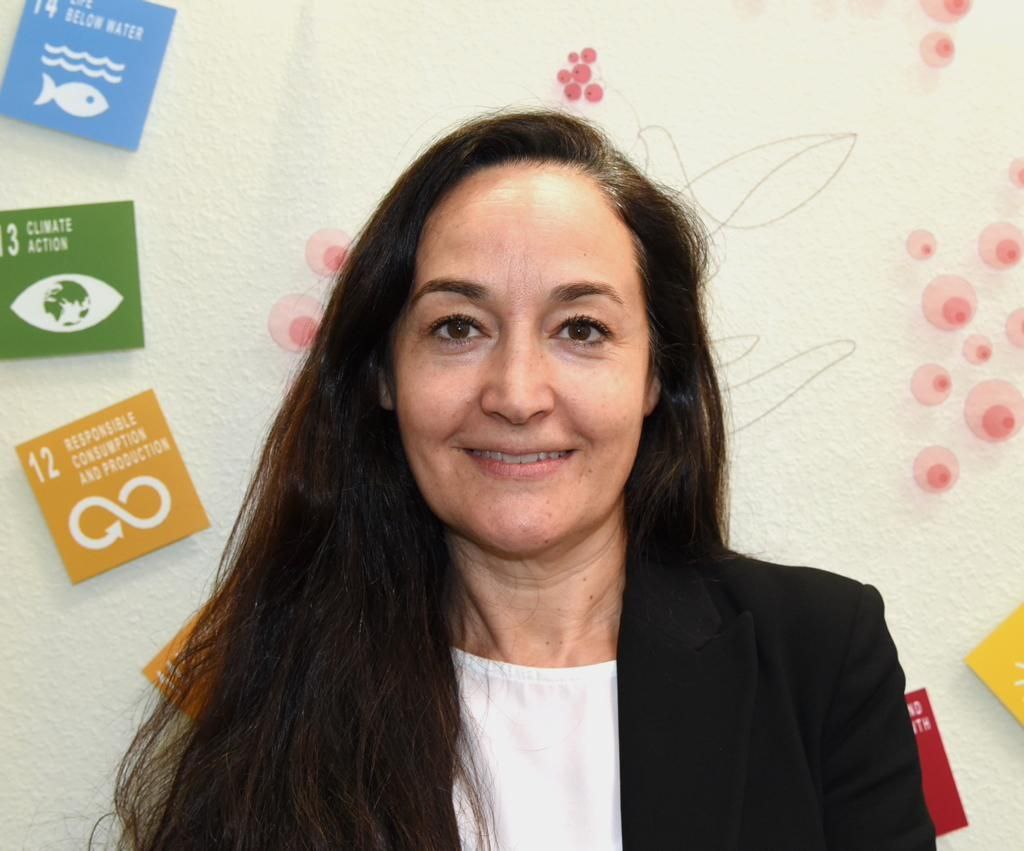
Andriy Kulykov: Hello and welcome to Ukraine Calling, the English-language podcast from Hromadske Radio in Kyiv. I am Andriy Kulykov, and our interviewee is Chiara Dezzi Bardeschi. She is the Head of UNESCO Desk in Ukraine since October 2022.
Mrs. Bardeschi has over 22 years of professional experience in organization, mainly working in fragile states and emergency context. Of course, the Ukrainian context is now an emergency. And the talk will be mostly about how UNESCO helps Ukraine cope with this emergency.
Chiara Dezzi Bardeschi: Since the onset of the full-scale invasion in February 2022, UNESCO has been assisting Ukrainian population and institutions. Three wider mandate areas have been at the core of our work, namely education, and particularly continuity of education. Through two main axes, the first is distance learning and the possibility for teachers to continue to reach children. And this through distribution of devices, thanks to several partners, including Google. And we could reach, by December, 50,528 teachers in order to enable them to connect with the children and with different classes, with a component for all the pedagogical tools associated to this means of education. And the second is mental health support. As you know, mental health and psychosocial support is really a key domain. We are all affected by this context. All of us, children, but also not only children, but teachers, education staff, all, the entire system. So we are closely working with the Ministry of Education and Science in, first, guidelines and all the policies to strengthen the system, the response systems in this domain, the education system, and we could identify, through an assessment, gaps to reinforce facility, to reinforce training. And we are now working with psychologists in school to reinforce the system, and with teachers. We have an objective in the very short term, and this year already started, to reach 15,000 psychologists working in education system and 20,000 teachers to provide services, as the ultimate goal, to 160,000 children.
You may also read and listen: Anastasia Stanko: «My only one decision as a journalist was I should go to the front line»
Kulykov: Chiara Dezzi Bardeschi is our interlocutor in this podcast, Ukraine Calling from Hromadske Radio, and she heads the UNESCO Ukrainian Desk now. But you know, when I hear things like in a very short term, very many, or on the contrary very few, I always ask, please specify what is a very short term for UNESCO.
Dezzi Bardeschi: Within the very short term, in the very first months, we have been really providing equipment to journalists to be able to continue broadcasting. The individual and personal equipment, bulletproof jackets and helmets, 126. We have activated a hotline for journalists to have information, to have a certain type of assistance required in this emergency. We have started at the time, and now we are continuing this important task to support media solidarity centres, which are today in six cities. They are in Kyiv, L’viv, but also in closer areas to more active conflict today, like Zaporizhzhya, Kharkiv. And this is very important because it’s a space given to continue broadcasting information. I think that I’m in the right place to say how relevant it is to be able to continue to provide, in these circumstances, access to information to the population, to the context, to what’s happening, and also humanitarian information, especially for areas which do not have in some cases access to the basics, to electricity, also to internet. So even papers, newspapers are becoming relevant to reconnect the communities.
Kulykov: In this case, I strongly object about the word even. It’s not even. It’s logical. And people who have not shared the view that printed press or radio are to be stricken off, and I’m one of them, saw the proof of the importance of these so-called outdated means. Because on the occupied territories, for instance, very often radio was the only source of getting information from the free territory. And then when the Ukrainian troops came and liberated some of the areas, the first thing that local residents wanted to hold was their local newspaper, because what’s happening in Paris, Moscow, Kyiv, or elsewhere, they can know from the internet or the television when it’s restored, but what’s happening 10 kilometres away from them, only the local newspaper, or a small radio station can tell. So to me, what you’re saying about your help to those outlets means that UNESCO, or rather, its representatives here, have a vision, a real vision of what is happening and what is needed. But is it based mostly on your previous experience, on the knowledge that you have, or are you listening to the call from the ground?
Dezzi Bardeschi: It’s both. I think this is important, because for sure, the lesson learned for other contexts, which of course, is different because each context is unique, is irrelevant because it can help to better identify solutions, or even sometimes best practices. But at the same time, of course, each context is unique, and we have to start from the context. The mandate of UNESCO is to listen and to assist the member states, the authorities, technical institutions, people, civil societies, and to support them. But we have also global mandate, because for instance, in the case of safety of journalists, our mandate and work is conducted in the framework of the implementation of the UN plan of action on safety of journalists and the issues of impunity. So it’s very specific. Each country has its relevance. And this is not, I would say, a task which is done in one unique moment, in the onset of the work, in setting the scene of the work, but it’s a continuous exchange with different partners and with communities at community level, at institutional level, and it is necessary to listen to different voices and needs. And based on that, we are building programs together. We are here not to teach, we are here to support.
Kulykov: Well, maybe you’re not here to teach, but we can learn from you. And that’s for sure. Coming back to the very first days or weeks of the invasion, was the Institute of Mass Information your main point of contact at that moment? I’ll tell you why I’m asking this, because I have a bulletproof jacket from them. And when you said that you were delivering bulletproof jackets to Ukraine, I thought maybe I have a UNESCO-provided bulletproof jacket.
Dezzi Bardeschi: UNESCO is in the domain of support to the media, is working, as you know, in an approach of supporting pluralism and independent media. So it’s always looking at expanding its partners and is aiming at working with several. So you might have received through partners the bulletproof vest and the helmet. This network is very important. And we are always looking at enriching it and continuously supporting creating this connection among different partners. And to enable to continue to support the approach which is human rights-based and inserted in the freedom of expression channel. So far, we mentioned two domains, because I go back to the very beginning question–
You may also listen and read: 2022 helped Ukrainians to overcome the inferiority complex — Volodymyr Yermolenko
Kulykov: That’s because I keep interrupting.
Dezzi Bardeschi: We mentioned education. We mentioned the safety of journalists and the freedom of expression support. The third domain is heritage and culture, cultural heritage and culture more in general. And this is an area where from February last year, we have been very closely monitoring, from one side, the damage occurring to cultural properties in the country. And at the same time, looking at all the protection measures, both in a preventive manner to enable to reduce the risk, mitigate the impact of possible missile strikes on specific, for instance, open air monuments.
We did this for instance in Odesa to protect open air monuments, but also to intervene immediately in the urgent repair for institutions, museums, and all this part. But this tangible heritage component has always been flanked with the support for capacity investment to support professionals. And we do know that the outflow of professionals and brain drain, today, is a key issue. We have worked through continuing to support professionals, and
I can give you some examples, in professionalization in this, in how to address, how to cope with the crisis, how to start looking at, for instance, a preparedness plan, security plan in museum, how to work in emergency inventory, how to secure collections, how to reply to the risk of looting, of illicit trafficking according to the UNESCO Cultural Convention. But also supporting livelihoods of artists, culture bearers, because this is the vital part of the identity, the cultural identity of a country. We’re supporting, for instance, cultural projects and looking at supporting projects through grant schemes, reaching associations in different regions of the country. We are now launching a second stage of this appeal. We could already support some projects in Kherson, Dnipro, Kyiv, Lviv. We are building a cultural hub for coworking, reinforcing capacity. And all of this is done at different levels. It’s done in close work with the line ministries, not only Ministry of Culture and Information Policy, and with all the technical part.
Kulykov: Ms Dezzi Bardeschi, I noticed that your face expression changes quite a lot. And we were talking very lightly before we started the recording. Then you became very serious, and I think I can understand why, because I’m listening to you seriously. as well as I’m sure the audience now listens. But when you started to talk about supporting livelihoods of the artists and some other things, there was a smile on your face. And I presume, and correct me if I’m wrong, that there’s this smile of satisfaction because of the work that you do.
Dezzi Bardeschi: The work, but we are at the beginning of a path. I’m smiling especially because these two last components that I mentioned, culture and the safety of journalists, are now in a way finding their match in what we are now starting to work on. We are actually now in the process of launching a new program to involve journalists in the documentation of damage to cultural heritage and of documenting, reporting on cultural life. You would be not maybe surprised yourself to see how today museums which are empty of their collections, because they are secured, are alive with artists, temporary exhibitions, debates from one side, but this is maybe little known out of the country, and it’s a very important element. So documenting this is also a possibility to contribute, to forge and to enlarge this debate on the relevance of culture in inclusive society from one side. The other is the damage side, the documentation of damage, this is a very critical issue as we know, and there is a lot of interest coming also from journalists and I tell you why, because we launched this program in partnership with the Institute of Mass Information.
Kulykov: I knew this would come to them.
Dezzi Bardeschi: And in coordination with the Minister of Culture and Information Policy, starting with a call for journalists interested in joining it to be trained somehow to report cultural life in the current context and document cultural heritage, damage to cultural heritage especially, around fifty initial proposed cultural heritage sites. We received more than 200 applications. So, this shows also how this is of interest for the society, and is actually helping us. It is one of the means to understand where the interest, where relevance is in terms of needs. It’s one of the forms also to listen and to identify needs. And from these 200, seventy Ukrainian photojournalists were selected via this public call. We are starting tomorrow Iwith the very first training. it’s a training looking at safety of journalists, continuing what we already started in the country through the Media Solidarity Centres. Till December, we have been able to support and train in different subjects, starting with these core skills, the area of safety of journalists, more than 1,600 journalists. So we continue this line of action looking at introducing this very specific topic.
You may also read or listen on Hromadske Radio: «Everything I see now is inspiration» — Melinda Simmons
Kulykov: While working with these journalists, photojournalists in particular, do you look for people who already have a significant level of professionalism or you can take anybody?
Dezzi Bardeschi: The best is to have skilled people, isn’t it? This is very important and of course, there may be some differences but this is the best starting point. These journalists will work during this first training, which is divided over two weeks’ time. They will be equipped with all this knowledge, standards, and even practical information how to document, how to take appropriate photos, within the lens of what is required for documentation of culture. They will work and report developing their skills around how to approach a certain mainstream topic, for instance, through cultural life, how this is relevant. And through this, they will be actually working on specific individual or collective projects to develop their skills, to develop their reportage skills within this time. This is the project expected to be completed by the end of the year. So, this leaves time for this kind of work and it foresees also to have several opportunities of exchange and dialogue. And also to satisfy further needs and to have further opportunity to increase this debate. I hope that one of the next times you will host here one or several of these participants in the trainings to tell about their experience.
Kulykov: You’re very convincing in saying this, I admit. And you know, again, coming back to your words that you are not here to teach, I think that you are here to train, and since we are talking about photographs now, about the art of photography, most of us or many of us have an opportunity to make photos practically while we’re taking every step, yes? We have mobile phones, and you have one. My question to you is what do you photograph in Kyiv?
Dezzi Bardeschi: Myself? Or the… [Laughs.]
Kulykov: Yes, yes, yes. You. Chiara Dezzi Bardeschi.
Dezzi Bardeschi: Well, I photograph people, and you know, I keep my professionalism coming from what we do, so we are very much people-centred. And looking at taking photos of details of what is happening or ourselves, it’s culture as well. Now maybe to expand your question: what we are photographing in this training course? We spoke about cultural life, and this is a topic where each journalist participating in this program will develop, you know, a lens, an approach, through a topic. They will also have to bring their creativity and let’s not forget that we are working with culture. Culture is also creativity. It’s all these parts: professionalism of reporting and the safety of journalists. Beside this, we are documenting, as I said, around fifty damaged sites, starting from the list of sites that UNESCO has already verified as damaged sites since February 2022. We are doing this exercise at two levels.
We are doing first, and more prominently, efforts in satellite image-based analysis. This is done regularly, daily, and we are verifying attacks and effects of areas which are attacked to identify if properties are damaged. Most of the time, we are able to do this within 24, 48 hours. But sometimes even after that this depends on when we receive the information. Based on that, after this step, when the site is accessible, we are conducting an inspection on site to understand the magnitude of this impact. This is important for several purposes. The first is to verify the damages, and this exercise has been also used in the very recent appraisal, global appraisal of the rapid damage and needs assessment conducted by government with World Bank, the UN and the European Union, and in the domain of culture, the magnitude of the impact is clear. We have, over the next ten years, quantified in term of needs, seven billion of US dollars. In the damage from February 2022 to February 2023, the damage reached two billion for tangible heritage, namely religious sites, historical buildings, buildings of artistic relevance, and so on.
Kulykov: Is it the UNESCO estimate or is it provided based on the data provided by the Ukrainian authorities?
Dezzi Bardeschi: It’s a joint exercise, as I was saying, so we’re starting, really, from data from local authorities, from the ground, from Oblast and actually, the report is public, it’s also on the Internet but you will see that is very also detailed analysis: I mean, it’s an overglance also done at Oblast level. I said damage but losses, meaning all the creative sector, creative cultural industry, film industry, theatre, performance, are actually more than fifteen billion US dollar already, in one year. So, you understand why I started saying we need the seven billion to reconstruct the sector. This type of exercise, of monitoring via satellite image, that UNESCO is conducting, is contributing through verified information on sites to this appraisal, overall appraisal.
To date, we have 255 sites verified. I mean, verified through the different categories of heritage which are those that related to the UNESCO 1954 the Hague Convention for the protection of cultural heritage in the context of conflict. It is set in the framework for this type of analysis. We have identified sites where to conduct this course with two criteria, I would say, because I’m sure you’re interested to know how we identify it. We downsize it to fifty initial sites, which is about accessibility for journalists working in this course, but also the magnitude of the damages. So, in UNESCO analysis, we have minor damages, moderate, severe, and destroyed. And we are leaving aside the minor because they are unlikely to be fixed quickly so maybe not relevant for training purposes but certainly relevant for documentation purposes. In the context of training, we focus instead on the moderately, severely damaged, and destroyed sites. And also on some eight regions in order to have a better distribution and concentration. But of course, as I said, this is the beginning of this course and we will also see how this is advancing.
Kulykov: And I believe that our today’s conversation is just the beginning of a series of conversations and interviews and also some reports on the very impressive work that UNESCO is doing in Ukraine. My last question is: you mentioned that according to classification there is minor damage, moderate damage, then severe, and then destroyed. You are teaching a- sorry, you are training our people now to document the damage. But in many cases I’m sure, and we have such examples, what is destroyed can be restored. Will you be training us to document the restoration as well?
Dezzi Bardeschi: Absolutely. There is an important priority. We are already working closely with the Ministry of Culture and Information Policy in this domain. There is a huge and important priority on all these conservation measures, starting with all that is related to stabilisation, consolidation, because even in areas or immediate areas where you cannot start restoration to this stage because maybe they are still under shelling or risk, what has to be done, which is a very important step, is not to lose the fabric, the historical fabric, the cultural fabric, to stabilise, to conserve, to protect. Actually we, this year, thanks to the financial support of the government of Japan in the domain of culture, this is one of the priorities. And actually we are starting now organising deep infrastructure on how not only to organise and support the training in these specific topics but also how to ensure sustainability of this, how to link it with the institutional structure, where to continue through this training and where Ukrainians can continue to do this, and there are very good professionals in Ukraine, I would say. This is very important also, and the needs are huge.
Kulykov: And the help is huge. Even if it is not immediately seen by, as they say, the naked eye, when you look closer, when you think about how much effort is done, then yes. I’m quite sure that we will return to this topics because there is much to get to learn.
Thank you very much. Chiara Dezzi Bardeschi was our interlocutor in this podcast, Ukraine Calling from Hromadske Radio in Kyiv.
This podcast is produced within the project «EU Emergency Support 4 Civil Society», implemented by ISAR Ednannia with the financial support of the European Union. Its contents are the sole responsibility of Hromadske radio and do not necessarily reflect the views of the European Union.
